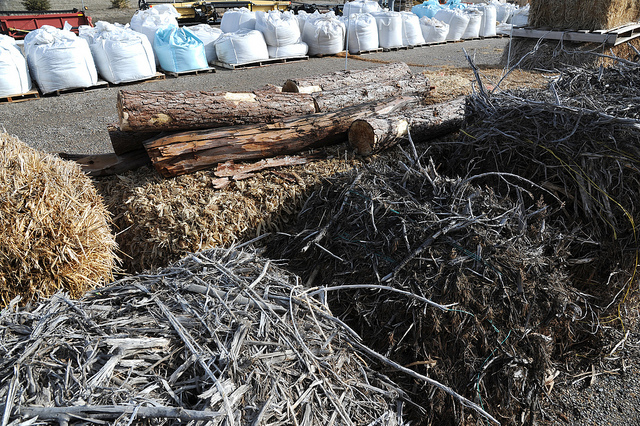The following story was originally published on IFPRI’s Food Security Portal.
The “food vs. fuel” debate came no closer to a resolution last week, as Energy ministers from the European Union’s 28 member states failed to agree on a compromise limiting the use of transport fuels made from food crops such as rapeseed and wheat, so-called first generation biofuels.
The EU’s current policy requires 10 percent of transport fuels to come from renewable sources by 2020; with current technologies and the low prevalence of electric cars, this amount would be almost entirely derived from liquid biofuels, mainly based on food crops. This mandate has come under fire for putting energy needs before food security, diverting necessary food crops away from hungry mouths and into gas tanks. In addition, its expected benefits in terms of reducing greenhouse gas emissions are becoming more and more questionable as a result of enhanced tools and methods for carbon accounting. In October 2012, the European Commission (EC) proposed to address these problems by modifying the current framework of the EU biofuels policy.
In July 2013, the European Parliament’s Environmental (ENVI) Committee followed the EC’s lead and voted to cap the transportation industry’s use of first-generation biofuels at 5.5 percent (a slight modification to the 5 percent proposed by the Commission) and require reporting of any indirect land use changes (ILUC) caused by biofuel production. When forests and other pristine lands are cleared for new farmland to expand biofuel production, the carbon stored in their soil and accumulated biomass is released, resulting in a net increase in greenhouse gas (GHG) emissions. These ILUC effects could lower biofuels’ environmental benefits. (For more information on ILUC effects, see our previous post and IFPRI’s 2010 and 2011 studies). The committee also pledged to promote the use of second-generation biofuel sources, such as algae and straw, which have less potential for causing ILUC.
Under heavy pressure from the biofuel industry and various member states, however, the proposed cap was later raised to 6 percent by the European Parliament. This legislative reform initiative was then voted on by the European Council, which represents the divergent opinions of the EU Member States. The council vote took place on December 12 and signified a further attempt at compromise with Lithuania- current holder of the EU presidency-proposing a 7 percent cap.
In all, seven member states formed a blocking minority and rejected the proposal – Belgium, Denmark, Luxembourg, Hungary, Italy, the Netherlands, and Poland. While some of these states, such as Poland and Hungary, argued that a 7 percent cap was too low and would cost jobs by forcing existing biofuels plants to close, others such as Denmark and Belgium are pressing for even lower caps and are emphasizing the need to account for ILUC effects.
As in previous debates, the issue of ILUC proved to be a sticking point. The European Biodiesel Board (EBB) applauded the rejection of the proposed method to calculate ILUC effects, dubbing it “ungrounded science” and calling for further research. EC officials, however, still consider IFPRI estimates to be robust, calling them “the best available science” on the issue, particularly since IFPRI’s findings have been published in peer-reviewed academic journals and supported by other research and methodologies, in particular the work conducted by the EC Joint Research Center of ISPRA.
For now, the legislative process on EU biofuel policy remains on hold. Greece assumes the EU presidency in January, and parliamentary elections will be held in May. Meanwhile, the current European Commission expires in October 2014. Taken together, these institutional changes will likely hold up a final decision on the issue of future biofuels mandates until 2015. Unfortunately, the status quo will only benefit existing biofuel producers; it will not fix the policy, nor will it address legitimate food security and environmental concerns. Ultimately, such legislative uncertainty will delay investments in new biofuel technologies and improved production pathways.







